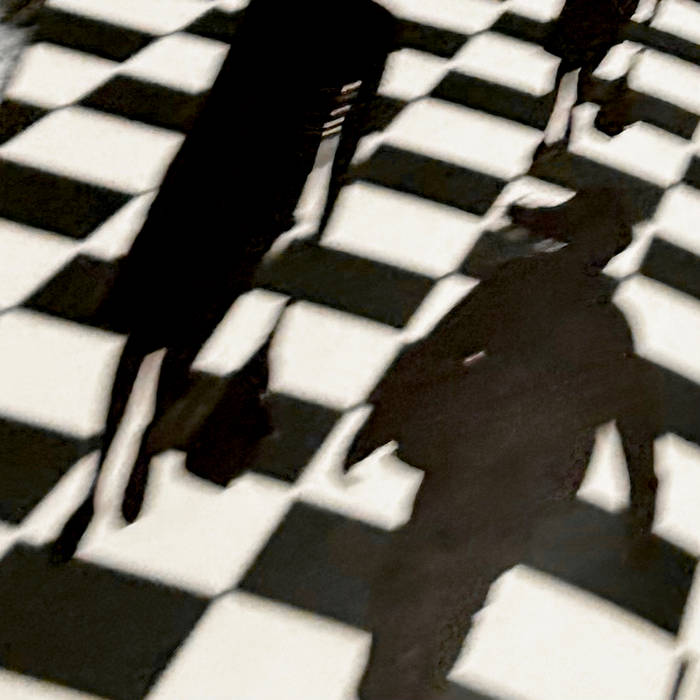In the 1990s and 2000s, Scandinavia was at the forefront of a wave of poptimism, with Swedish producers such as Bloodshy and Max Martin creating an assembly line akin to Andy Warhol’s Factory – unashamedly pop culture and art without contradiction. With their latest album, leftfield pop superstars Smerz are doing the same thing for the 2020s, leading their peers of Copenhagen experimental pop artists including 100%WET, Astrid Sonne and Erika de Casier. It’s wonky like Björk, bratty like Charli XCX, hard-hitting like Model/Actriz, post-everything like caroline, lush like Chanel Beads, but really, any comparison is reductive. Smerz have hit the perfect sweet spot that all pop musicians aspire to – the hooks so sticky you have to floss to get them out of your teeth, and the execution so fascinating that you’ll probably never want to. Big city life captures a post-Brat sense of maturity, like an observer looking back at the heightened emotions of youth, produced with immaculate delicacy.
It comes at a very apt time for Copenhagen. In recent weeks, publications from Dazed to The Guardian have put out articles heralding the Copenhagen scene, helped by the deserved popularity of Cph+ playlist on Spotify: it boasts almost 40,000 saves, unprecedented given the introverted, esoteric pop dreamscapes which occupy the playlist. Though mostly grouped in with experimental pop, deconstructed club – HEAVILY deconstructed, and a bit chopped and screwed too – would be more appropriate. Especially on the opening Mattafix-interpolating titular track, the album sounds like it could be sung from the perspective of a fly navigating the smokey haze of a club, unable to make sense of the abstract bass and obfuscating lights, hovering from one half-heard conversation from another (“I heard that the trip was great, I heard that they broke up”). It’s essentially music for the afters following a night of post-hyperpop scenester-ing.
The twisted take on dance music is most evident on ‘Roll the dice’, a deadpan take on “the city is ours”. It shines with confidence and attitude over a bastardised house beat, like if Ke$ha sang karaoke over a Fiona Apple piano lick. ‘Fiesty’, which features synthesized string stabs over mutant disco drums evokes the image of a quiet kid dreaming of reapplying her glitter in a nightclub bathroom. Smerz are the kind of group who can take this vaguely hedonistic club fantasy (“my IQ is low, my heels are high”) and juxtapose it against it against soulful, dream pop gems like ‘A thousand lies’. Smerz has the power to contrast the lush with the lurid without incongruity.
The centerpiece of the album, ‘You got time and I got money’, may be one of the most beautiful songs ever created. From the sensual ethereality of the synths to the effortless trip hop beat, it is a track which could charm even the most cold-hearted listener. If the opening half of the album captures the post-modern overstimulation of the club environment, this is surely the soundtrack to the last dance, after all other attendees have left, only one couple remaining under the spotlight. Its purposefully simple, sentimental lyrics (“I am yours and your, boy, only, put your hands around me”) avoid becoming tangled in metaphors, avoiding any platitude. Like all great romances, it exists without justification, without explanation: “I like your shoes; I like those clean t-shirts on you”. Each syllable drips in passion, and in the first draft of this review, I wrote about it for six paragraphs.
Formed in 2016, Smerz took their name from the German word herzschmerz, meaning “heartbreak”. A downtempo mood precludes the album, discreetly positioned between catwalk anthems where the catwalk is a walk to the bookshop. This is especially evident in the second half, such as the hauntingly washed out ‘Dreams’, a synthgaze ballad reminiscient of early M83. “Dream about me” cries the refrain, as auto-tuned vocal runs recall 808s & Heartbreaks. The string-laden trip hop closer, ‘Easy’, looks back on the emotional turmoil of the album from a position of wisdom and growth: “I thought it was easy… I thought I knew back then”. The song is at once a statement of maturity and vulnerability, leaving the dance floor atmosphere which Smerz imbibe in the first half.
In a recent interview with Vogue, Henriette Moltzfeldt – one half of the duo alongside Catharina Stoltenberg – said that the title track touches on “the way you can live as a human in this box but surrounded by people in the city. You can walk among those people and still feel very alone”. There is a sense of the onlooker, the bystander, to Big city life, like watching youthful memories pass by from a high altitude. Big city life tells a bittersweet story but does so with such elegance and attitude that it affirms the life it describes.




